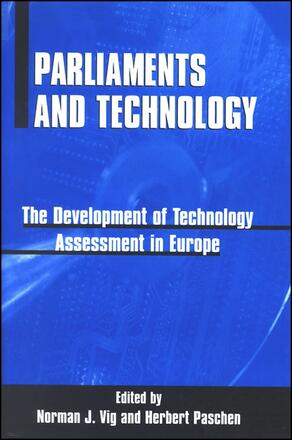
Parliaments and Technology
The Development of Technology Assessment in Europe
Alternative formats available from:
The first comparative analysis of the development and practice of technology assessment in different national settings.
Description
Parliaments and Technology explores an issue critically important to the practice of democracy everywhere: How do citizens and elected officials assess the opportunities and costs of new technologies that may profoundly impact their societies' future? For example, what are the social and moral implications of gene patents, reproductive technology, cloning and genetic engineering or of virtually unlimited access to information? Technology assessment has become one of the most important methodologies for aiding legislatures in analyzing and deliberating such questions.
The first comparative analysis of the development and practice of parliamentary technology assessment in different national settings, this book explains the origins, methods, and impacts in five European countries—Britain, France, Germany, Denmark, and the Netherlands—and the European Parliament. It also provides a theoretical framework for comparing the institutionalization of new functions in different parliamentary systems and the influence of national political cultures on the conceptualization and operation of these new agencies.
Contributors include Josée van Eijndhoven, John Grin, Dick Holdsworth, Rob Hoppe, Simon Jos, Lars Klüver, Todd M. La Porte, Maurice Laurent, Michael Norton, Herbert Paschen, Thomas Petermann, and Norman J. Vig.
Norman J. Vig is Professor of Political Science and the Winifred and Atherton Bean Professor of Science, Technology and Society at Carleton College. He is coauthor or coeditor of several books including Technology and Politics, Environmental Policy: New Directions for the Twenty-first Century, and The Global Environment: Institutions, Law, and Policy. Herbert Paschen is Acting Director of the Technology Assessment Bureau of the German Parliament and former Director of the Institute for Technology Assessment and Systems Analysis at the Research Center in Karlsruhe.
Reviews
"…comprehensive … with excellent, thorough analyses. " — Perspectives on Political Science
"I learned a great deal about the politics, culture, and institutions of the five countries explored, both from the carefully done national case studies and the cross-national comparisons. I found it fascinating. It makes an important intellectual contribution to the study of comparative/European politics. " — David Vogel, University of California, Berkeley